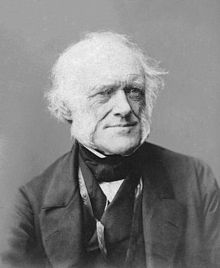Joseph O’Donoghue
O’Donoghue, Joseph
Joseph O’Donoghue is an Irish author who graduated from University College Cork with a BSc in geology. After a number of years he found that the work of a geologist had lost its appeal.  However, his deep-rooted interest in the mysteries and controversies associated with geology drove him to a private investigation of the subject.
However, his deep-rooted interest in the mysteries and controversies associated with geology drove him to a private investigation of the subject.
A review of O’Donoghue’s work commented “His research reinforced his impression that the geological establishment had bought too far into one theory of natural forces, to the extent that they had to close their eyes to any facts that contradicted it. As a result, they had made themselves blind to obvious and observable phenomena that their theory could not explain.
The theory in question is uniformitarianism, which is the idea that the forces at work in the natural world (like erosion) haven’t changed over time, and so everything we observe must have an explanation that is still at work. It also means that changes happen very slowly and gradually. On the surface, this seems logical, but problems arise because it simply cannot explain everything. There are some events we know happened, like the Ice Age, that are not explainable by this theory, or that can only have occurred by massive catastrophes.” (a)
O’Donoghue has commenced publishing an intended eight books with the series title of The Legend of Atlantis and the Science of Geology. The first two volumes, Atlantis and Catastrophe: Myth or Reality? [2100] and The Geology of Greece: Uniformity or Catastrophe? [2101] are now available.
In the first pages of Volume One he declared his support for the idea of Atlantis as an Atlantic continent. I totally disagree with that idea and my reasons can be read using the links here.
I expect that I shall be returning to Mr.O’Donoghue frequently, as I work my way through the first two volumes.
Lyell, Charles
Charles Lyell (1797-1875) was Scottish-born lawyer and the leading British geologist of his day. He  was a enthusiastic proponent of uniformitarianism as expressed in his best known book, Principles of Geology. Daniel Wilson quoted Lyell as concluding that “the entire evidence is adverse to the idea that the Canaries, the Madeiras, and the Azores, are surviving fragments of a vast submerged island, or continuous area of the adjacent continent.” From the same book, R.E. Anderson quotes[1486] Lyell as confessing a temptation to ”accept the theory of an Atlantis island in the northern Atlantic” [1472.141]. He expressed similar sentiments in his Elements of Geology [2090.363].
was a enthusiastic proponent of uniformitarianism as expressed in his best known book, Principles of Geology. Daniel Wilson quoted Lyell as concluding that “the entire evidence is adverse to the idea that the Canaries, the Madeiras, and the Azores, are surviving fragments of a vast submerged island, or continuous area of the adjacent continent.” From the same book, R.E. Anderson quotes[1486] Lyell as confessing a temptation to ”accept the theory of an Atlantis island in the northern Atlantic” [1472.141]. He expressed similar sentiments in his Elements of Geology [2090.363].
This view was contradicted by later geologists in the 19th and early 20th centuries, who even suggested landbridges across the Atlantic or a series of islands offering stepping-stones between the Old World and the Americas. Today, supporters of an Atlantic Atlantis offer less dramatic theories suggesting, the Canaries, Azores or Madeiras are remnants of Plato’s Island.
>>2024 saw the publication of the first two volumes [2100/1] of Joseph O’Donoghue’s eight-book series, The Legend of Atlantis & the Science of Geology in which he consistently criticises the work of Lyell and by extension current supporters of his uniformitarianism. My observation is that O’Donoghue overstates the level of support for Lyell’s ideas today, as the acceptance of catastrophism seems to have gained growing support ever since Immanuel Velikovsky published Worlds In Collision and Earth in Upheaval [037/8], which, athough flawed, kick-started a renewed interest in catastrophism.<<
Principles of Geology – Available online: https://wallace-online.org/converted/pdf/1835_Lyell_WS2.1.pdf (Fourth Edition vol 1, 1835) (4 volumes, change pdf number)
Elements of Geology – Available online: Elements of geology : Lyell, Charles, Sir, 1797-1875 : Free Download, Borrow, and Streaming : Internet Archive
Vitaliano, Dorothy B.
 Dorothy B. Vitaliano (1916-2008) was a geologist who published Legends of the Earth in 1973[0306] in which she discussed how catastrophic seismic or volcanic events were retained for posterity in the legends of the peoples who experienced them. She invented the term ‘geomythology’ to describe what she considered to be a distinct field of study.
Dorothy B. Vitaliano (1916-2008) was a geologist who published Legends of the Earth in 1973[0306] in which she discussed how catastrophic seismic or volcanic events were retained for posterity in the legends of the peoples who experienced them. She invented the term ‘geomythology’ to describe what she considered to be a distinct field of study.
Probably inspired by Vitaliano, Cindy Clendenon has promoted a new related field of study(c) that she calls ‘hydromythology’[0801].
Vitaliano’s book included a chapter on Atlantis in which she expresses her opinion that there is nowhere in the Atlantic Ocean that Atlantis could have existed. Understandably, sceptics of an Atlantic Atlantis seized upon this statement, while those that adhere to the idea that it had been a large island in that ocean were understandably dismayed. Vitaliano also discussed the biblical Plagues of Egypt and their connection with the eruption of Thera in the second millennium BC.
Dorothy’s husband, Charles J. Vitaliano (1910-2000) was also a professor of geology and together they pursued the study of major geological events and their effect on ancient cultures.
There are two of Vitaliano’s papers that are available online(a)(b)as well as some sample pages from her book(d) and a short review (e).
>>In 2024, Joseph O’Donoghue published the first two volumes [2100/1] of an eight-part series titled The Legend of Atlantis and the Science of Geology. He has devoted a number of chapters of Volume One to a criticism of Vitaliano’s concept of geomythology.<<
(a) https://www.scribd.com/doc/88638242/Geo-Mythology
(b) https://www.scribd.com/doc/88638136/Atlantis-a-Review-Essay
(d) https://www.bmblebeebbooks.net/book_pages/1174.html (link broken)
(e) https://digicoll.library.wisc.edu/cgi-bin/WI/WI-idx?type=div&did=WI.v20i4.i0016&isize=text
